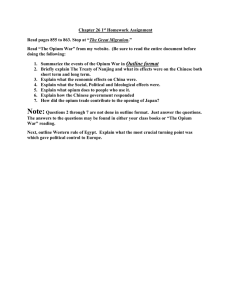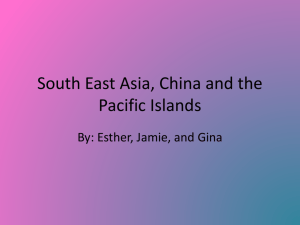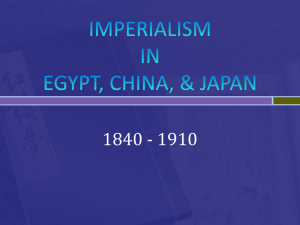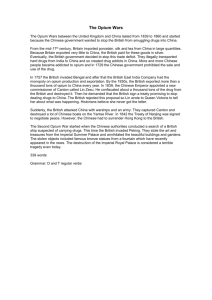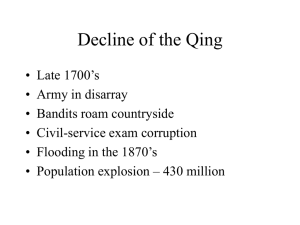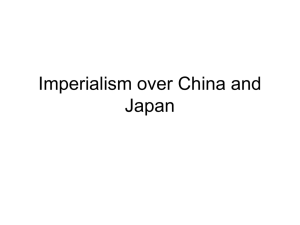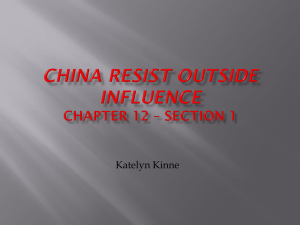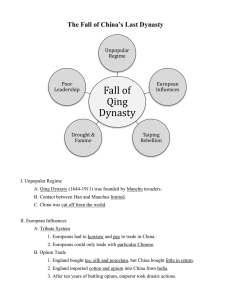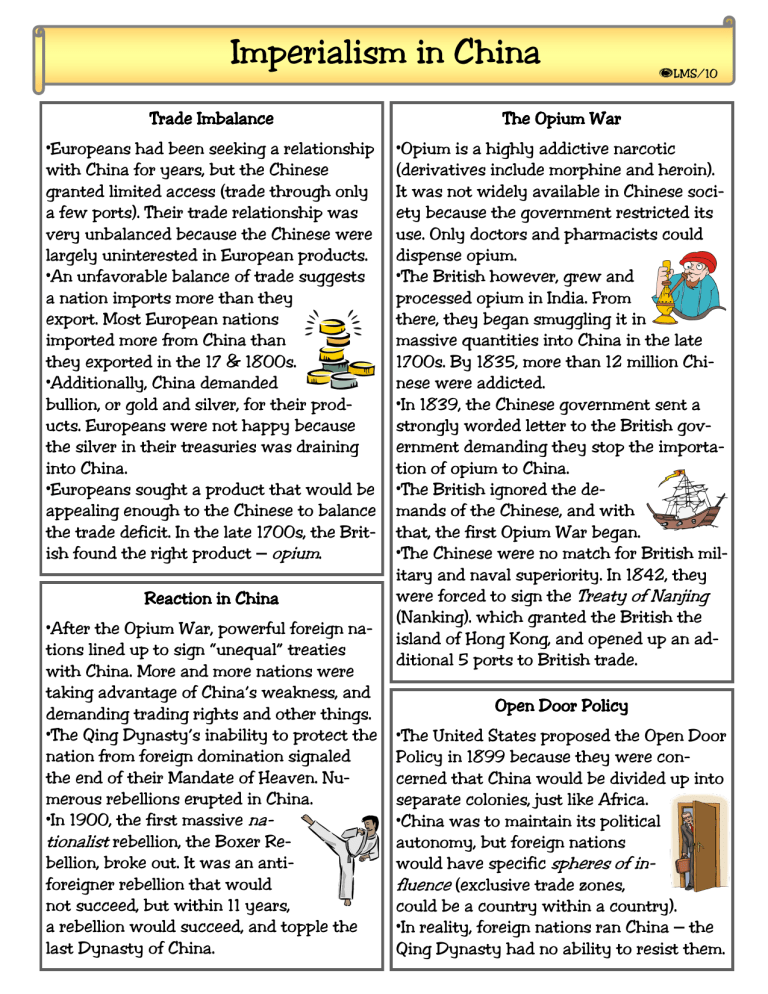
Imperialism in China SLMS/10 Trade Imbalance The Opium War •Europeans had been seeking a relationship with China for years, but the Chinese granted limited access (trade through only a few ports). Their trade relationship was very unbalanced because the Chinese were largely uninterested in European products. •An unfavorable balance of trade suggests a nation imports more than they export. Most European nations imported more from China than they exported in the 17 & 1800s. •Additionally, China demanded bullion, or gold and silver, for their products. Europeans were not happy because the silver in their treasuries was draining into China. •Europeans sought a product that would be appealing enough to the Chinese to balance the trade deficit. In the late 1700s, the British found the right product — opium. •Opium is a highly addictive narcotic (derivatives include morphine and heroin). It was not widely available in Chinese society because the government restricted its use. Only doctors and pharmacists could dispense opium. •The British however, grew and processed opium in India. From there, they began smuggling it in massive quantities into China in the late 1700s. By 1835, more than 12 million Chinese were addicted. •In 1839, the Chinese government sent a strongly worded letter to the British government demanding they stop the importation of opium to China. •The British ignored the demands of the Chinese, and with that, the first Opium War began. •The Chinese were no match for British military and naval superiority. In 1842, they were forced to sign the Treaty of Nanjing (Nanking). which granted the British the island of Hong Kong, and opened up an additional 5 ports to British trade. Reaction in China •After the Opium War, powerful foreign nations lined up to sign “unequal” treaties with China. More and more nations were taking advantage of China’s weakness, and demanding trading rights and other things. •The Qing Dynasty’s inability to protect the nation from foreign domination signaled the end of their Mandate of Heaven. Numerous rebellions erupted in China. •In 1900, the first massive nationalist rebellion, the Boxer Rebellion, broke out. It was an antiforeigner rebellion that would not succeed, but within 11 years, a rebellion would succeed, and topple the last Dynasty of China. Open Door Policy •The United States proposed the Open Door Policy in 1899 because they were concerned that China would be divided up into separate colonies, just like Africa. •China was to maintain its political autonomy, but foreign nations would have specific spheres of influence (exclusive trade zones, could be a country within a country). •In reality, foreign nations ran China — the Qing Dynasty had no ability to resist them. Global History Imperialism in China Name _____________________________________ 1. Define: Unfavorable balance of Trade - 7. How did the Chinese government react? 2. Why did Europeans have an unfavorable balance of trade with China? 8. What was the Treaty of Nanjing? What did it grant to the British? 3. Why did China demand bullion for their products? 9. What happened to China after their loss in the Opium War? Why was this a problem for Europeans? 10. Why did numerous internal rebellions erupt in China? 4. How did Europeans balance the trade deficit? 11. What was the Boxer Rebellion? The result? 5. What is opium? 12. What was the Open Door Policy? To what extent was it available in China? 13. What was the reality of China in 1900? 6. What was the British opium plan?
